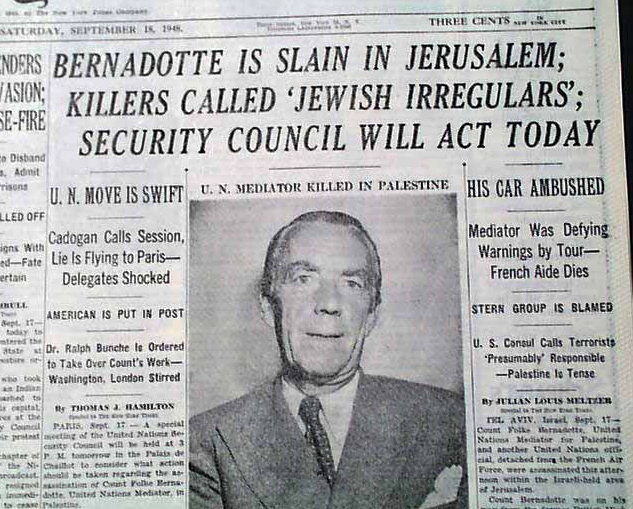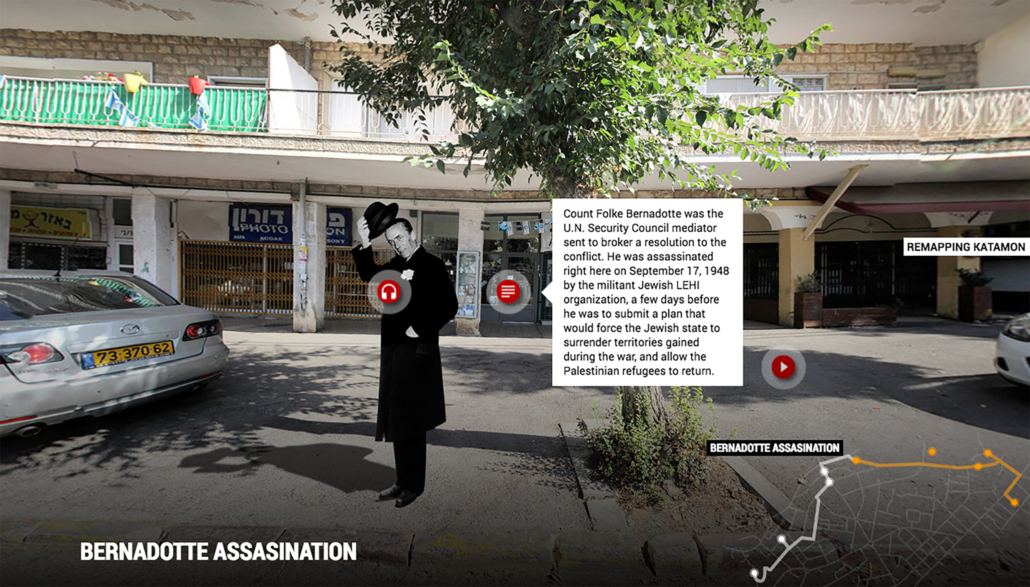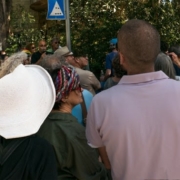The Assassination of Count Folke Bernadotte
The junction of Hapalmach and Ha’Gdud Ha’Ivri streets in Jerusalem is unassuming. Hapalmach — an acronym meaning strike forces/company — is a street named after the elite militant wing of the Haganah, the underground army of the Jewish community in pre-1948 Palestine. Ha’Gdud Ha’Ivri, or the Jewish Legion, was established following the British conquest of Palestine from the Ottomans in World War I, and disbanded in 1921. Like many other streets in Katamon, the names assigned after 1948 commemorate the 1948 war. But the victor did not leave a trace to the horrific events of 17 September 1948.
Here, the Stern Gang (a right wing Jewish paramilitary group) ambushed a convoy of vehicles carrying Count Folke Bernadotte, the U.N. Mediator in Palestine, and assassinated him.

During World War II Bernadotte was the vice-president of the Swedish Red Cross and was instrumental in saving tens of thousands of people, including thousands of Jews, from the Nazis. The plight of refugees all over Europe touched Bernadotte deeply and turned into a core principle for him, central in the two proposals Bernadotte submitted in regards to Palestine. The first proposal, submitted in June 1948, envisioned a confederation between Israel and Trans-Jordan but did not guarantee Palestinian independence, and was thus rejected by both parties. The second proposal, completed the day before his assassination, was to be submitted later in the month and was based on a two-state solution, an amendment to the 1947 U.N. partition plan. However, in both proposals, Bernadotte insisted on enabling all refugees to return to their homes. This principle was undesirable to the Israeli leadership under David Ben-Gurion, who was trying stalling tactics. The Stern Gang (Lehi) under the leadership of future prime minister Yitzhak Shamir planned and carried out the assassination.
Bernadotte’s second plan became the basis of U.N. resolution 194, which was passed in December of 1948. It resolved that “refugees wishing to return to their homes and live at peace with their neighbours should be permitted to do so at the earliest practicable date, and that compensation should be paid for the property of those choosing not to return and for loss of or damage to property which, under principles of international law or equity, should be made good by the Governments or authorities responsible.”
Obviously, the “earliest practicable date” has yet to arrive…
The story of Count Folke Bernadotte is narrated in JWRH by Professor Ilan Pappe. Visit the Bernadotte Assassination site on the Yellow Tour to learn more.

(UN Audiovisual Library – 1 Aug 1948)


Leave a Reply
Want to join the discussion?Feel free to contribute!